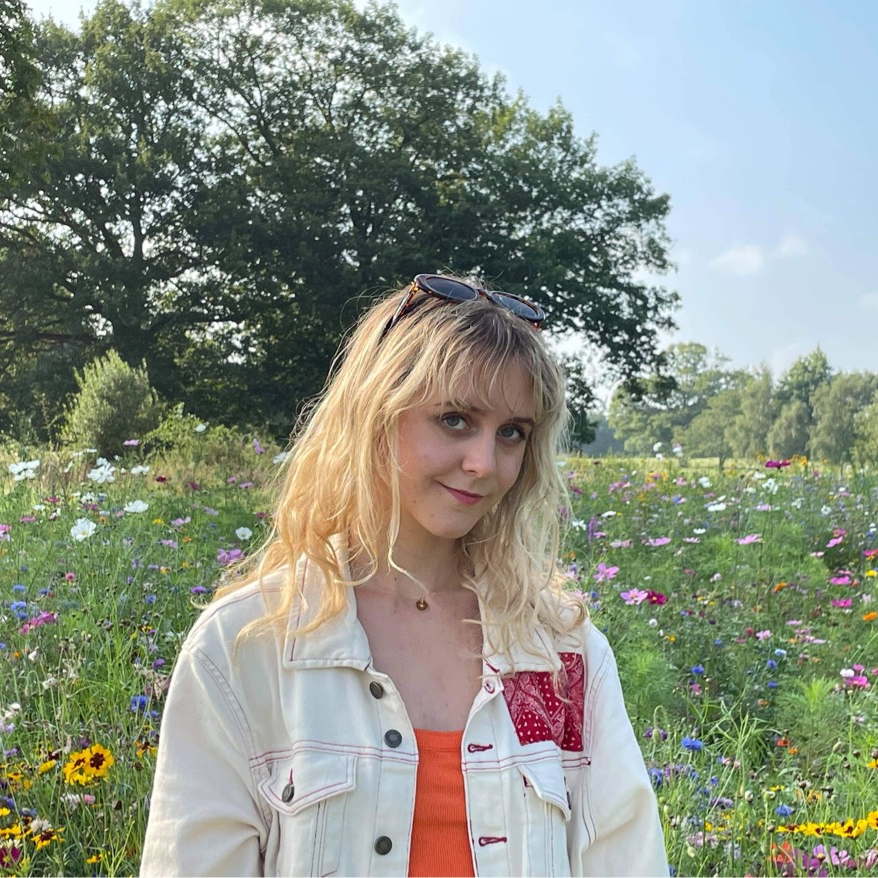- ...
Masters Compare - Find your perfect masters course.


We are very pleased to award our Masters Compare Scholarship for 2023-24 to Daria Koukoleva, who is studying an LLM at The London School of Economics and Political Science. She is a graduate of Oxford University and the first in her family to attend a UK university.
Daria shared her experiences of choosing to study a postgraduate degree and what winning the scholarship will mean to her. She started her masters degree at the University in September 2023.
It may be a strange place to start, but I remember writing in my UNIQ summer school application in Year 12 that it was my aspiration to do a masters, though of course I had no idea what this would truly entail. This year, I came a step closer to achieving this goal by completing my undergraduate degree in Law with French Law at the University of Oxford.
My academic journey as I now describe it really started halfway through my degree: I really enjoyed public law, and the dissertation that I wrote in the summer of 2021 was about the regulation of technology. The two areas of law clicked for me, and that was when my degree stopped existing in a vacuum – my legal learning shifted into a much more analytical appreciation of fast-moving commercial realities and political tensions that responsible policymakers must wrestle with.
This realisation came at the right time, as my degree included a year abroad at Panthéon-Assas Université in Paris where I could explore other areas, such as public finances and economics. This prepared me well for considering a masters, as I realised I really enjoyed researching and I had found my niche in transnational economic law and regulation, but I felt I still had much more to learn and experience.
The LSE offered the perfect complementarity of courses that match my existing interests and push me to go outside my comfort zone. There were other very eminent universities I considered which also had similar courses, but location was important for staying close to friends and family, so I chose to stay in London.
The LSE really appealed to me in particular because it allowed students to study outside of their degree discipline, so, for example, an economist can take a course in philosophy. The events and opportunities are also unparalleled: the school always has a busy calendar with past alumni and experts sharing in their success – I knew it would be a privilege to be a part of this network, and it has exceeded my expectations.
I had mixed recommendations. On some accounts, I was discouraged because it would be either too challenging or I should be working and can study later in life. However, I knew that the experiences and insights I would gain from my masters would hugely benefit my future role. The challenge has made me much better at what I do, and I have had access to opportunities I would not have been able to anywhere else.
My semester load at the moment does not provide me much time to work alongside my studies, as I am studying four courses this term and focusing on graduate applications. Saying this, I know colleagues who fit tutoring jobs either early in the morning so they can prepare all day for courses later in the afternoon or evening, or pick up weekday and weekend shifts in service industry roles.
The gig economy provides many opportunities for flexible working – to make it workable, the important skills are prioritisation, self-discipline, and knowing how to manage your energy levels to avoid over-exhaustion. Something also worth noting is that, although it is less common in the UK, research assistant positions do exist for masters students – the LSE Law School has its own scheme for this and some students with prior experience do reach out to faculty staff to ask if research projects require extra heads.
To work or to continue studying: it is a difficult decision to make and I remember wrestling with it for a long time, especially as I decided to start postgraduate study right after completing my undergraduate degree.
I think the most important question to answer is, what value will a masters give to you that you cannot get elsewhere? As it is very often a significant financial commitment, what you are investing in your own education should give a good return.
In particular, masters are not seen to be as unique as they once were, so it is important to consider whether a masters is an important part of your story. I have colleagues who are fresh from their undergraduate degrees (like myself) who chose to do so to build a specialism, others who are already very specialised but wish to add another marketable specialism to their arsenal, and many who are looking to pivot their career in a different direction.
Another thing to consider is whether the field you are interested in offers better progression if you have a masters – I am aware that this is quite true of many STEM and highly specialised careers. In law, the picture is slightly different: while in Europe and elsewhere a masters is often a prerequisite, this is not the case in the UK. For particular areas of law at the Bar, it is beneficial to have a masters, and sometimes even a PhD is key in highly complex practices.
For solicitors and in-house roles, I have learned from speaking to professionals that it is not necessary, but it can advantage you if you can demonstrate that you are able to offer a unique benefit to clients or the business.
Deciding whether or not to do a masters also requires balancing of other factors. I have friends whose graduate schemes started over a year later, so a masters offered a useful transitional year to gain new knowledge and broaden your network through student initiatives, alumni meetings, and exclusive events.
As I was under a lot of pressure during my final year whilst making these applications, I could not rely on my gut feeling as I usually would. I considered all these variables so that when results arrived, I could be confident I thought of everything I possibly could.
The scholarship came at such an important time and I am very grateful for it. While recognising and accepting that undertaking a masters has been the right step forward in my journey, it still has not been an easy financial commitment to make, especially given the current cost of living crisis.
The scholarship will give me the financial freedom to not worry about buying coffee or textbooks and will allow me to think more ambitiously about where my education can take me.
While I will not change my spending habits, such as religiously adhering to meal plans and hunting for student deals, I am able to think more about what investments I can make to support my education. In particular, the scholarship will support me immensely in my journey to qualification and give me the confidence to invest in my future.